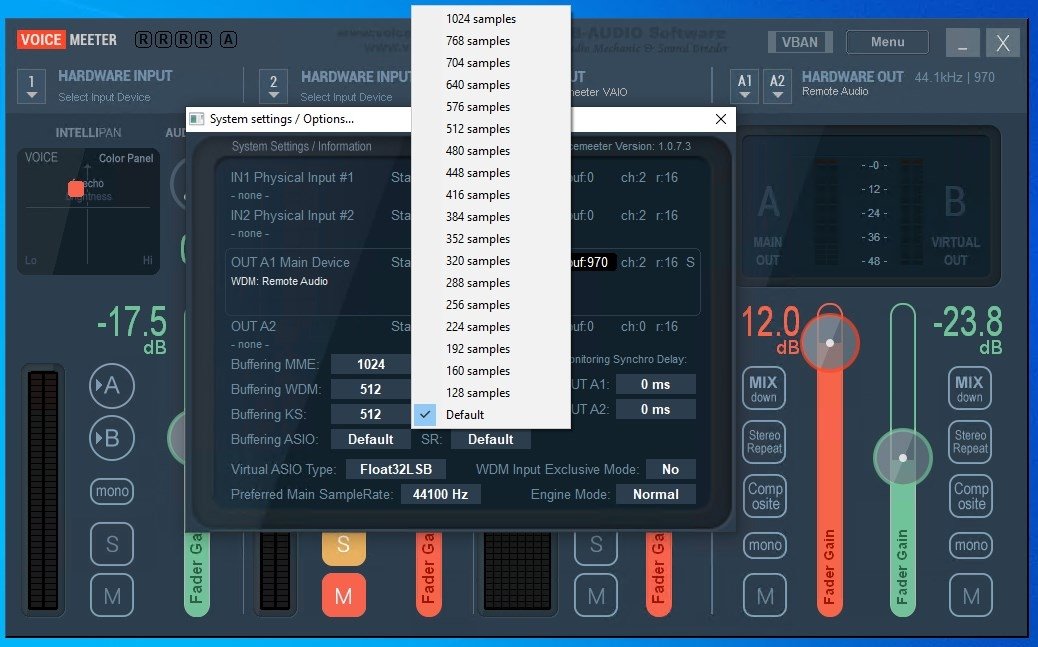

Prevent Microphones From Echoing Through Speakers.You may also want to turn off your mobile phones.įor more information regarding microphone picking up unwanted sounds, check out some of my other articles: It is recommended that you position your mic at least 10 feet (3 meters) away from your amps, speakers, or other electronic devices, in order to remove this feedback or static noise. To fix this, you may want to change where you stand while you speak into your mic. Occasionally, the high- or low-frequency sounds from your other electronics, like your TV, phone, or other devices, can also cause audio static when your mic is too near. Feedback is caused by the ambient noise that is being projected into the air and which cycles back through your mic. If your microphone is too near your amplifier or speaker, you would hear feedback or a sharp screeching sound. So if this is the problem, it is best to get a mic with a USB connection.Ī USB connection reduces static considerably since it doesn’t deteriorate as quickly as a mini jack connection.Ĭheck out: Wireless Mic Vs Shotgun Mic: Which Is the Better Type? Microphone Is Too Close to Speakers, Amps, and Other Electronics A mini jack is also not earthed and therefore picks up static from your electrical equipment, computer, and even your body. It is also worth noting that if your mic has a mini jack, you may get static noise from all over the place because it typically won’t fit tightly into the plughole. If you find it difficult to read and determine which plughole is for which device, use a flashlight and maybe a magnifying lens to make sense of the very tiny icons printed above the plugholes. In this case, you might need to buy a new cable.Īnother possibility is you have plugged the microphone jack into the wrong port. So, you won’t be able to get rid of the static noise. If the cable is still loose and it jiggles, then it won’t properly connect to the interface or amp. Check the cable of your speakers or headphones, too. If not, then give it a gentle push to plug it all the way in. As such, make sure that the jack of your mic has been pushed far enough into the port of your audio interface, amp, or computer. Bad Cable ConnectionĪ cable or jack that is not sitting or plugged correctly in its port can cause static noise.

If the static is still there, keep adjusting this knob until it gets to the gain level where you can no longer hear any static noise.Ĭheck out my picklist for the Best Condenser Mics For Less Than $200. Turn the gain down one to two decibels and try talking into the mic to see if it worked. To get rid of the static in this particular case, you need to find the “input” or “gain” knob on your interface, amplifier, or on the mic itself. So you will need to lower the gain slowly and check the static as you go along. There is no universal setting for gain since not all microphones are the same in terms of sensitivity. Solution: Lower Gain on Your Audio Interface, Amp, or Mic So you can just imagine how noisy it could get if the gain is too high. As such, a mic with a high sensitivity level would naturally require less preamp gain. So even if you expose these mics to the same sound source, they would produce different levels of audio output. For example, condenser mics generally have a higher sensitivity than dynamic mics. Moreover, keep in mind that different microphones have different sensitivity levels, some of them being way more sensitive than others. So if the gain has been set too high, the more likely your mic is going to pick up background noise then amplify this noise into static. Even more so if your mic is very sensitive.Īs a rule of thumb, remember that the higher the gain, the louder your mic’s output volume is. If this is the case, you may hear some buzzing sound or electronic noise. In many cases, the static noise produced by your microphone is caused by the gain, which may be set too high on your audio interface or your amplifier. Microphone Is Too Close to Speakers, Amps, and Other Electronics.Solution: Lower Gain on Your Audio Interface, Amp, or Mic.


 0 kommentar(er)
0 kommentar(er)
